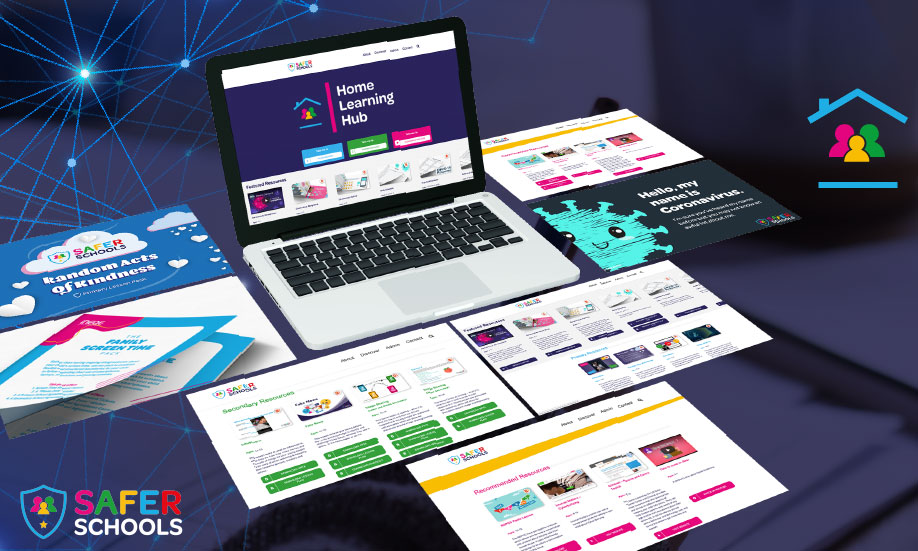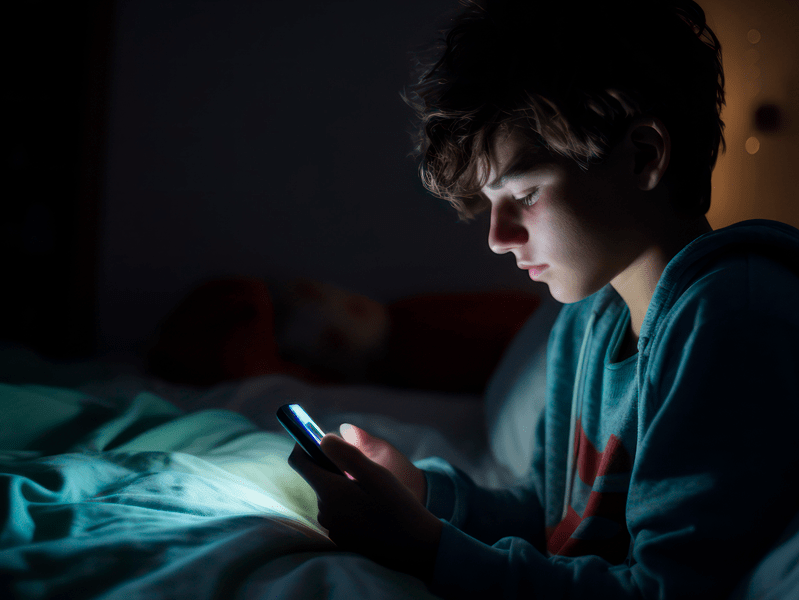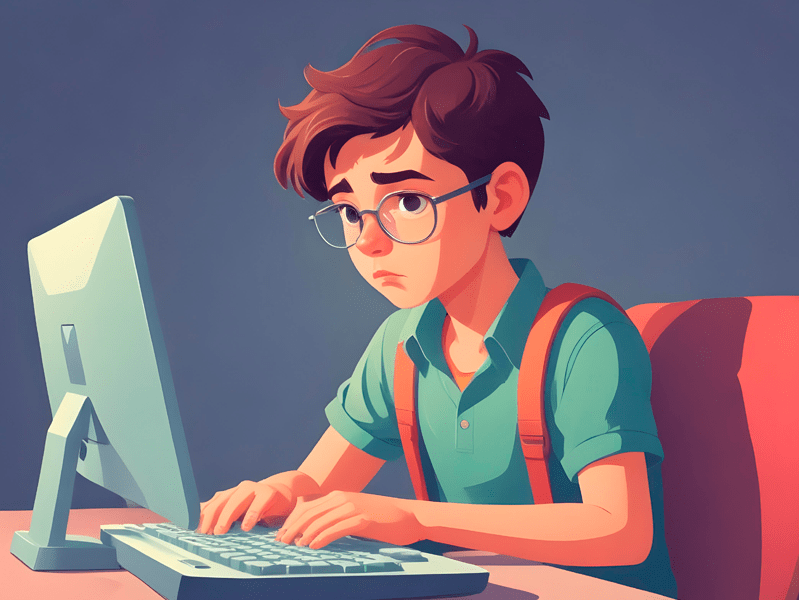Last Updated on 5th April 2024
Read the script below
Colin: Hello listeners, welcome to Safeguarding Soundbites, the podcast that brings you the latest in safeguarding news and alerts. I’m Colin.
Tyla: And I’m Tyla! What are we talking about in this week’s episode, Colin?
Colin: Today, we’re discussing fines facing Meta, TikTok pranks and online challenges, and how one child racked up a hefty bank bill on Roblox.
Tyla: Sounds good – let’s get started with some social media news! Colin?
Colin: It’s actually been quite a social media-heavy news week. One of the biggest stories has been about Meta, who have been fined 1.2 billion euros for mishandling data by Ireland’s Data Protection Commission.
Tyla: This sounds like a familiar story!
Colin: It may well and that’s because this isn’t the first time that Meta have faced fines for how they handle the data of users in Ireland. This is actually their fifth fine by the Irish regulator. This time, the fine is about how their platform Facebook transfers the data of EU users to the US without proper safeguarding. – This is despite a previous ruling by the European court of justice back in 2020 that robust protections must be put in place.
Tyla: And Meta have also been told they have to stop transferring users’ data the US within the next five months.
Colin: Yes and they have been given six months to remove any data they already have from their US servers.
Tyla: Well, let’s see if we’re talking about this again in six months then!
So, Colin, we know that social media websites often appear to copy each other’s features.
Colin: Yes. When a feature works really well on one social media platform, we sometimes see a very similar feature pop up on one of the others…
Tyla: Completely by coincidence, I’m sure!
Colin: Of course! But copyright around social media features is pretty complicated – there’s not really any law, as such, that stops one social media company copying a feature of another.
Tyla: Well, Instagram have announced a new feature coming to the platform this summer. It’s a text based microblogging app that can be integrated with Instagram, but will also be a stand-alone app.
Colin: So a Twitter competitor?
Tyla: Sounds like it! The name of it hasn’t been released yet but with lots of safeguarding concerns around Twitter, it will be interesting to see what happens, what the app looks like, its parental controls and more.
Colin: Definitely something for us to keep an eye on here on Safeguarding Soundbites.
Tyla: Precisely. Listeners – we will keep you in the loop with this one!
This week, we released a new shareable all about Reddit! The social news website and forum has been around since 2005 but has grown in popularity over the last years. The site is made up of thousands of different communities based around topics, like news, politics, dating, memes and, of course, cats! Our shareable explains what Reddit is, what the main risks are and gives some top tips on keeping young people safer. And because it’s a shareable, it’s perfect for sharing with friends, family and colleagues! You can find it on our Safer Schools App, one of our safeguarding apps, and on our website where you can also download it and, of course, share it on social media.
Colin: An 18-year-old has been given a fine after entering a family’s home as part of a so-called prank. The prank, which has become popular after trending on TikTok, involves going into stranger’s houses uninvited and filming the home owner’s reactions to post on social media. The young man was fined £365 and given a two-year criminal behaviour order, plus ordered not to publish any content on social media without the express permission of anyone featured in the video.
Tyla: Wow. This is one of those pranks that, actually, are quite scary. And have very serious real-life consequences.
Colin: Yes – in this case, we have the victims who have had to experience that. They’re at home, relaxing or working, possibly with their kids around, and suddenly a person – or in some of the videos of this prank, people – invading their home. And I’m sure you don’t automatically assume ‘oh this is a prank’.
Tyla: No, I certainly wouldn’t.
Colin: Then you have the perpetrator, this young man of 18 who now has a substantial fine to pay and a criminal order act.
Tyla: One of the problems with this type of trending social media pranks and online challenges is that young people maybe don’t think of the consequences, for themselves or for other people. They see these popular videos, with lots of people liking and interacting with them, everyone thinks it’s really funny…and they want to have that popularity and clout for themselves.
Colin: Yes, exactly.
Tyla: So what can we do and say to young people in our lives about these types of online challenges and pranks?
Collin: It’s important that we are teaching children and young people to understand risk. It’s part of the digital resilience we need to encourage – that they learn to use critical thinking skills and help-seeking behaviours in their everyday online interactions.
With this story in the news, parents and carers can use this opportunity to engage in a conversation about online challenges. Without showing them any videos or content, you can ask questions like, ‘What do you know about online challenges and trends?’, ‘Why do you think that young people take part in these challenges?’, ‘ do you know anyone who’s been involved in these types of challenges?’, and ‘Do you think these challenges are dangerous and could someone get hurt or in trouble?’.
Tyla: Also this is a great opportunity to have a talk about their trusted adults, too, to ensure they know who they can talk to if they’re worried about something they’ve seen online.
Colin: Great point, Tyla, that’s always an important conversation to have.
Tyla: The Scottish Government is set to announce an emergency summit on violence in schools. It comes after reported incidents hit the highest level in five years and a report was released by Watchdog Education Scotland that says bullying in Scottish schools may not be being recorded properly. A number of videos have also surfaced online showing attacks between pupils.
Colin: And an official from teaching union NASUWT has spoken out, saying that it’s about time the Scottish Government made strong…statements about the rights of teachers to a safe working environment…”.
Tyla: In other news, the government has released a response to the Independent Inquiry into Child Sexual Abuse. The inquiry, which was set up in 2015, was a statutory inquiry for England and Wales into how the countries institutions handled their duty of care to protect children from sexual abuse. The final report was published in October last year and contained recommendations in areas such as identifying and reporting child sexual abuse, how the justice system responds, and how victims and survivors can be supported. The government has now responded to the inquiry’s final report and their recommendations.
Colin: What were some of those responses, Tyla?
Tyla: So on creating a child protection authority in England and Wales, the government has accepted the need for a stronger safeguarding system and says they will ensure relevant actions are included in their reform programme. They have also accepted the need for a registration for staff working in care roles in children’s homes and in young offender institutions and secure training centres. The need to protect children from harmful and age-inappropriate content online has been accepted and the government referred to the Online Safety Bill requiring companies to assess if their service will be accessed by children and, if so, how can they deliver safety measures for them.
Colin: I know there’s lots of other measures and responses so if people want to read them, they can search online for ‘the government’s response to the final report of the independent inquiry into child sexual abuse.’
Colin: New figures from a study of school staff have shown that three in four school staff members believe safeguarding concerns have risen. The survey, conducted by education business Tes, asked school staff about the number of safeguarding concerns being raised compared to this time last year. They also asked whether staff felt there is sufficient guidance for schools on how to deal with allegations of sexual harassment and violence – 39% said they felt there wasn’t. A further one in four said they don’t think pupils feel safe at their schools.
Tyla: Quite worrying statistics there, Colin. But it’s important that we have these types of studies and surveys in order to highlight these important issues and make our school communities safer. Moving on now to other news and if you’ve been meaning to check and change your passwords but have kept putting it off, this next story will likely have you running to your password manager – or googling ‘what is a password manager?!’.
Colin: Yep, this is the news that a 10-year-old spent more than two and a half thousand pounds on Roblox after changing the password on their family iPad. Talk about building up a bill! The girl changed the password without her mum noticing, which then allowed her to make payments on the gaming site Roblox.
Roblox is a sort of ‘creator system’ that allows people to design and create their own 3D games which other users can then play. It’s mostly free but people can buy in-game currency that can be spent on things like clothes and accessories for their avatar and there’s also some pay-to-play games.
Tyla: And this wasn’t just one big payment either, was it?
Colin: No, the mother has said that that total was made up of smaller payments – basically £20 here, £20 there.
Tyla: Which means it’s easier to miss if this is happening over a period of time. Now, this is not the first incidentce of something like this happening – and this is not a case of ‘it’s all the mother’s fault for not noticing’, either.
Colin: Absolutely not. The problem is that many parents and carers either don’t know there’s ways to stop this happening, they’re of course busy, trying to manage households and actually sometimes these settings and controls can be difficult and timely to do or, put it off to do another time and that time never comes.
Tyla: Which is precisely what I do with my laundry, actually…
Colin: Fortunately, putting off doing your washing doesn’t run the risk of resulting in a hefty credit card bill!
Tyla: No, just a lot of frustration when I can’t find clean socks! But, in this circumstance, what can a parent or carer listening to us right now do to help prevent racking up bills on games?
Colin: I don’t know about bills but you could definitely do with going home and washing your socks today! So, this was on an iPad so I’m going to talk about that but whatever the device or platform, there’s going to be the equivalent settings and options.
Tyla: Okay.
Colin: So with Apple, you can enable FaceID and TouchID plus Ask to Buy. These features all mean that, as a parent or carer, you are physically needed to be there in order to log in to approve any purchase before it goes through. Their screen time features also enable parents to be able to stop in-app purchases. And for Roblox itself, there’s parental controls can to set a limit on how much a child can spend and you can also set up spend notifications.
Tyla: Those spend alerts will notify you when your child is trying to make a purchase?
Colin: Yes, exactly. And as I said, all of those options are just for an iPad and for Roblox. Most devices, gaming platforms, and games will have their own different options – it’s just a case of having to go through and turn them on. So whatever game your child is playing, I recommend that you go and make sure that if there’s spend alerts, in-app purchase limits etc or other options, to., make sure those are set up and turned on.
Tyla: Our Safety Centre will be a great place for people to find out more information on how to do this.
Colin: Yes, our listeners can go to oursafetycentre.co.uk or on any of our safeguarding apps, where you’ll find guides to parental controls and safety settings on all the most popular games and apps. And one of the great things about the safety centre is that there is step-by-step guides with visuals on how to use all these settings.
Tyla: Including Roblox!
Colin: Yes, including how to turn on spend restrictions on Roblox! Oh, I’d just like to finish that story by mentioning that the mum got her money refunded by her bank in the end, thankfully – but that isn’t common, I should say so it’s really important to take the time now to make sure those settings are in place. .
Tyla: Oh, that’s good news. And speaking of good news, let’s finish off today’s Safeguarding Soundbites with our Safeguarding Success Story of the Week! This week, it’s the news that Apple will be releasing new features to help make their devices, like iPhones and iPads more accessible. The updates are designed to help people with disabilities use their devices easier, including Live Speech, which will help people with diverse communication or speech needs by reading out loud text a user has entered on the feature.
Colin: And further to that, users can use the Personal Voice feature to train their device to read text aloud in a generated version of their voice!
Tyla: Apple will introduce the new range of accessibility features later this year.
Colin: That’s all from Safeguarding Soundbites this week. We’ll be back again next week with more news, alerts and need-to-knows from the online safeguarding world.
Tyla: In the meantime, you can sign up to our safeguarding hub at ineqe.com to stay up to date.
Colin: And you can follow us on social media by searching for Ineqe Safeguarding Group. Until next time, thank you for listening and stay safe!
Join our Online Safeguarding Hub Newsletter Network
Members of our network receive weekly updates on the trends, risks and threats to children and young people online.
Pause, Think
and Plan
Guidance on how to talk to the children in your care about online risks.

Visit the Home Learning Hub!
The Home Learning Hub is our free library of resources to support parents and carers who are taking the time to help their children be safer online.













